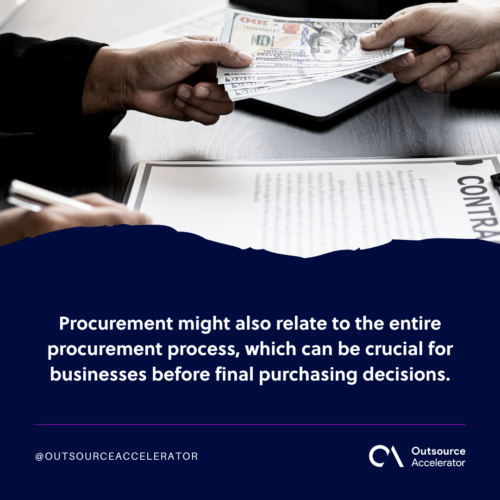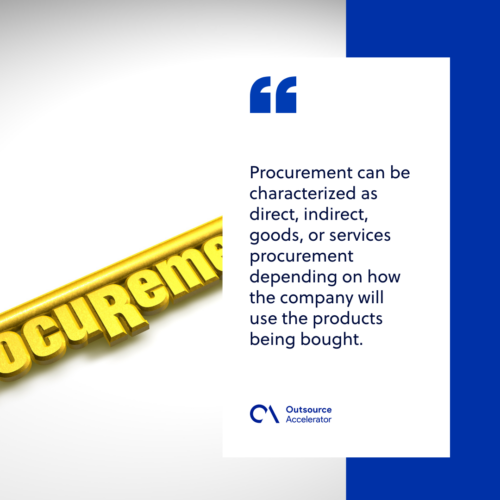Procurement
Definition
What is procurement?
Procurement refers to the final act of purchasing products or services for business needs. It is most often linked with businesses since firms must solicit services or acquire things on a large scale.
It is crucial to the buyer’s business to obtain the highest quality goods or services at the most competitive prices.
Procurement might also relate to the entire procurement process, which can be crucial for businesses before final purchasing decisions.

Why is procurement important in business?
Procurement is a crucial step in understanding supply chains. It supports the organization in finding reliable suppliers that can produce cost-effective goods and services that meet the organization’s demands.
It is applicable whether the firm is looking for raw materials for production, marketing services, or new office supplies.
The procurement process helps select the supplier that best satisfies all the client’s business objectives at the lowest possible cost.
It allows the company to avoid spending time, money, and valuable resources dealing with a substandard supplier. One essential component of improving your procurement process is cost reduction.
However, it is also important to find suppliers that can supply the quality goods and services that the company requires, and those who can produce on time and have a track record of doing so.
Types of procurement
Procurement can be characterized as direct, indirect, goods, or services procurement depending on how the company will use the products being bought.
Here are the four types of procurement:
Direct procurement
Direct procurement is the process of anything necessary to generate an end product. It can range from raw materials to components and pieces for manufacturing firms. For merchandising businesses, this will include the cost of purchasing items from a wholesaler for resale.
Indirect procurement
Purchases of products that are necessary for day-to-day operations but do not immediately impact the company’s bottom line are examples of indirect procurement.
It can include various purchases like office supplies, marketing materials, advertising campaigns, and others. For managing direct costs as compared with indirect costs, companies will generally have different budgets and processes.
Goods procurement
Goods procurement mainly refers to the purchase of tangible things, but it can also involve purchasing software subscriptions.
Good supply chain management techniques are typically required for practical goods procurement. Purchases made directly or indirectly may be included.

Services procurement
The acquisition of people-based services is the center of services procurement. Depending on the organization, this may involve recruiting contractors, freelancers, law firms, or on-site security services—including direct and indirect procurement.
In general, service companies base their cost of sales on the hourly labor cost of the people who provide the service. Thus procurement as a direct expense is not a significant component.
On the other hand, service-based businesses often have higher relative indirect costs since they frequently deal with their procurement as an indirect expenditure through marketing.







 Independent
Independent




